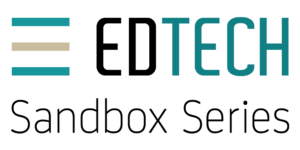About the Session

Workshop participants will explore how AI can support literature searching within literature reviews and examine ethical issues such as plagiarism, privacy, and research integrity. Participants will gain a foundational understanding of key AI-powered literature searching tools and learn how to evaluate their outputs for accuracy, relevance, and bias through hands-on activities.
By the end of this workshop, participants will be able to:
- Use AI tools effectively for literature searching
- Identify appropriate use cases for AI tools across the literature review process
- Critically evaluate AI-generated outputs for accuracy, relevance, and potential biases

- Recognize ethical considerations and limitations of using AI for literature reviews
Register Now!
This session will be recorded, archived, and shared after the event.
About the Facilitator
Justin Harrison is a PhD candidate in the Faculty of Education at the University of Victoria focusing on media literacy, news literacy, and their intersections with civic engagement and political polarization. He has over twenty years professional experience as an academic research librarian focusing on information literacy, and currently holds the position of Engagement & Learning Librarian at the University of Victoria Libraries.
About the Series
Discover the BCcampus EdTech Sandbox Series!
In these 90-minute workshops, expert leaders will introduce and demonstrate cutting-edge, open, and free, or low-cost educational technology tools aligned with the B.C. Post-Secondary Digital Literacy Framework. Participants will experiment with tools, work with fellow educators to review features of the tools, gain insights into teaching activities, and discover ways to integrate these tools into courses.
Focus Areas for 2025-2026
- The AI Sandbox: a space dedicated to experimenting with, and reviewing, artificial intelligence tools and applications in educational settings.
- Other Learning Technologies: a space to explore, experiment, and review emerging learning technologies beyond AI, highlighting their potential impacts and practical applications.
EdTech Sandbox Series Sessions
-
- September 10, 2025 – Choose Your Own Adventure! Dynamic Branching Scenarios and Game Maps With H5P and AI Tools
- October 8, 2025 – The Intelligent Notebook: Become a Knowledge Expert With NotebookLM
- October 17, 2025 – [Special EdTech Sandbox] Remote Proctoring Through an Ethical Lens: the Case Against Surveillance
- November 26, 2025 – Claude vs. ChatGPT: Choosing the Right AI for the Job
- January 21, 2025 – Build Your Own Teaching Bot: My Story of Creating CITE GPT as a Teaching Tool
- March 3, 2026 – Literature Searching with Artificial Intelligence
